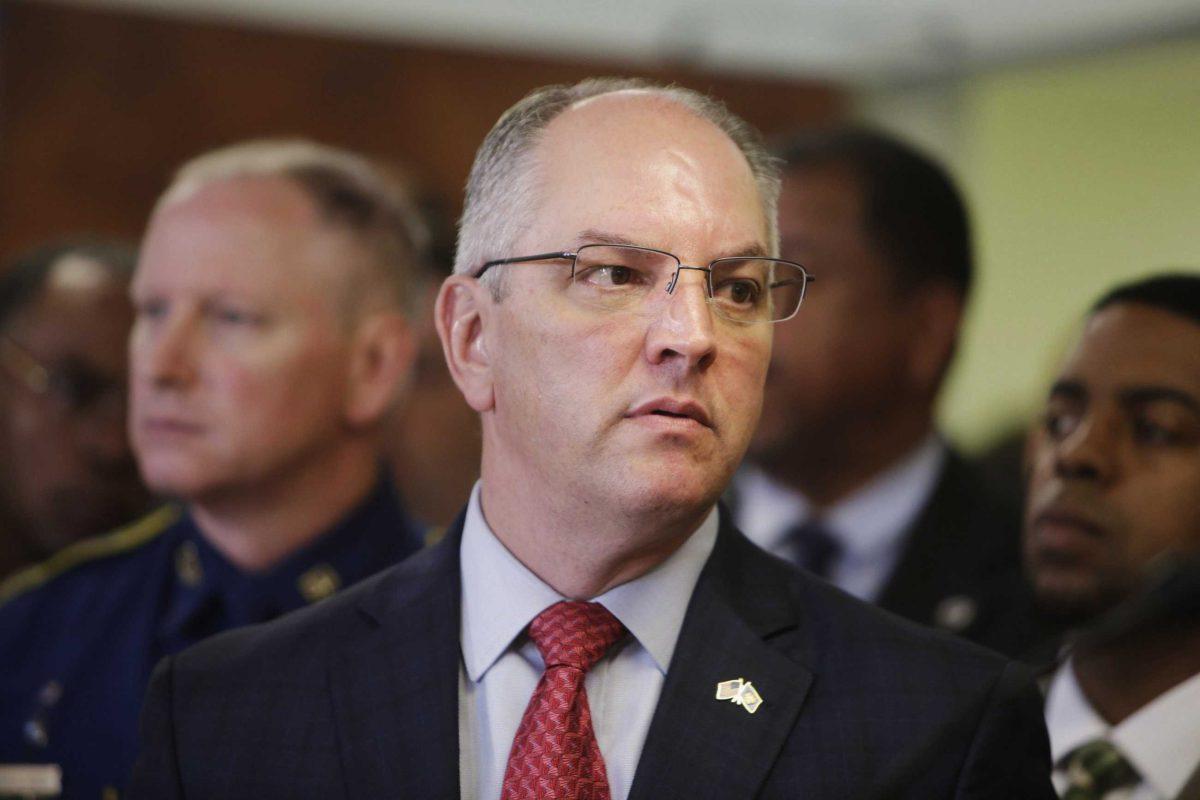BATON ROUGE, La. (AP) — Because of a projected $500 million surplus, Louisiana’s savings account for troubled financial times will receive a sizable $125 million bump in its deposits. But the “rainy day” fund still will remain below its peak after years of depletion to fill budget gaps.
While other states have focused on rebuilding their reserves since the last recession, Louisiana spent those years careening from one self-created budget crisis to the next, until Democratic Gov. John Bel Edwards and the majority-Republican Legislature reached a seven-year tax deal in 2018.
Recent surpluses have started refilling Louisiana’s rainy day account, formally called the Budget Stabilization Fund. But lawmakers and the governor also stripped a lucrative replenishment source to pay for roadwork rather than sock into the savings account.
Meanwhile, the $406 million balance in the fund remains below the level of reserves that national credit rating agencies advise — and below the level that half the nation’s states have in their rainy day funds — even as economists have warned a national recession could be on the horizon.
“Now’s a good time to prepare by filling up the rainy day fund,” said Robert Travis Scott, president of the Public Affairs Research Council, a nonpartisan government watchdog group. “We do not have it filled to the rate that’s probably prudent for the next economic cycle, and it’s clearly short of what the rating agencies say.”
While Moody’s Investors Service improved Louisiana’s credit outlook to “positive” last week, the Wall Street credit rating agency dinged the state for its low rainy day fund, calling it a “credit weakness.”
Louisiana created the savings account in its constitution in 1990 and reworked it eight years later, requiring that lawmakers earmark one-quarter of any surpluses into the fund. While certain income tied to oil and gas also flows into the account, the benchmarks to trigger such deposits haven’t been reached in many years.
The fund can be tapped when the state income forecast for an upcoming budget year is less than the current year. Only one-third can be withdrawn in a two-year period, and a two-thirds legislative vote is required.
The Budget Stabilization Fund topped $853 million at its high point in the 2008-09 financial year, according to the treasurer’s office. Former Gov. Bobby Jindal, Edwards and lawmakers siphoned off money five times in the last decade to lessen financial gaps, draining it to $287 million three years ago.
Three years of surpluses are starting to replenish the account.
Edwards, running for a second term on the Oct. 12 ballot, highlights the increased rainy day deposits as a sign Louisiana’s on improved financial footing, pushing back on criticism that he and lawmakers raised taxes too high.
But while the upcoming surplus deposit will boost the savings balance to more than $530 million, its highest level since 2014, that’s not nearly enough for Treasurer John Schroder.
“You’ve got to be well over a billion dollars to be healthy,” the Republican official said. “If we’re going to create some stability in this state, having a healthy savings account is part of that stability.”
Louisiana’s lawmakers had pledged another stream of annual cash would flow into the rainy day fund, a portion of hundreds of millions in Gulf oil spill recovery money that Louisiana is receiving from BP PLC as compensation for economic damage from the massive spill. But Edwards and lawmakers earlier this year redirected those dollars to instead finance roadwork, bridge upgrades and port improvements.
That will leave surpluses as the primary driver for filling the rainy day fund. If no surpluses appear, lawmakers and the governor have to put at least $25 million in the account annually, part of the settlement of a lawsuit involving prior uses of the fund.
Schroder suggests lawmakers and the governor should spend less than all the state dollars available yearly, to create new surpluses. Scott wants to see Louisiana rewrite its tax structure to lessen the unpredictability of its revenue streams.
“As long as you have a tax base that is sort of inherently uncertain and volatile, as we currently have it structured,” Scott said, “you’re probably going to need more money in a Budget Stabilization Fund than we have now.”
Report: Louisiana’s ‘rainy day’ fund balance considered low
September 23, 2019
FILE – In this April 11, 2019 file photo, Louisiana Gov. John Bel Edwards attends a press conference in Opelousas, La. Republicans challenging Edwards couldn’t match the Democrat’s fundraising pace as they ready for final advertising blitzes ahead of the Oct. 12 election. (AP Photo/Lee Celano, File)
More to Discover







